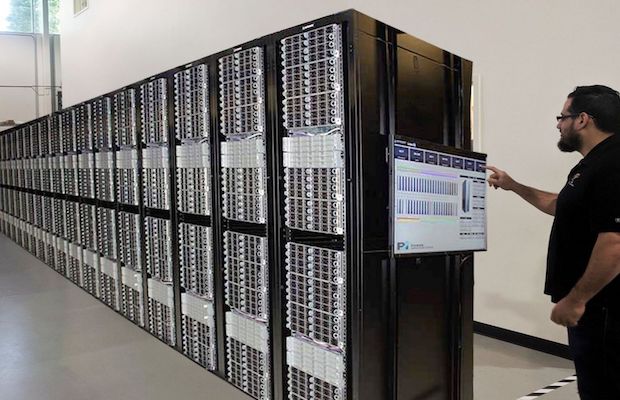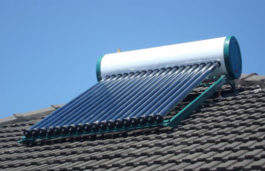
Utah-based Power Innovations has successfully completed a landmark 48-hour test with Hydrogen Fuel Cells, doubling the previous record of 24 hours

Utah-based energy solutions provider Power Innovations has announced that it has successfully completed a landmark 48-hour test with Hydrogen Fuel Cells. In the test, which set a new Hydrogen Fuel Cell (HFC) record, the firm powered a full data centre server load – 200 kW of hyperscale computers and computer simulators – for 48 continuous hours with HFCs, doubling the previous record of 24 hours, which was set by the firm last year.
By running four automotive fuel cells in parallel to generate 10,500+ kWh of pollution-free electricity in 48 hours, Power Innovation’s Hydrogen Fuel Cell Innovation Lab set a new record for hydrogen-generated computer backup power. This successful test demonstrates that hydrogen power is a viable, long duration, pollution-free solution to data centre primary and backup power needs.
What happened during this historic 48-hour test:
- 10,560 kWh of electricity was produced
- 51 kg of hydrogen was consumed
- 7,000 + L of pure water was produced
“Not many people know about the global crisis at hand related to data centres, but it’s something that Power Innovations is aware of and is making efforts to overcome. In the United States alone, data centres require 90 billion kWh of electricity every year. To put that into perspective, that’s as much electricity as is produced in 34 giant 500-megawatt coal-powered plants. The numbers are even more staggering when considering the global footprint: roughly 416 terawatts of electricity are required to power data centres around the world. As big as these numbers are, they’re only getting bigger. Data centre capacity doubles every three years and electricity consumption from data centres doubles every four. With this much-projected expansion, a solution for clean power is imperative,” the firm issued in its statement.
Currently, data centres typically rely on two sources of backup power- an Uninterruptible Power System (UPS) and a diesel generator. The UPS device takes over in the case of a power outage and serves as a transitional power supply for the 5-10 minutes it takes to turn on a diesel generator. Well-maintained diesel generators can keep power flowing for as long as they have diesel fuel. However, they have significant drawbacks, including not starting when needed, being noisy and dirty, having high maintenance activities and costs, and producing an excessive amount of vibrations and unhealthy carbon emissions.
Conversely, Hydrogen Fuel Cells offer multiple benefits over traditional UPS and diesel generator backup solutions. HFCs pack a traditional UPS and generator all in one unit – eliminating dual maintenance costs as well as floor space. HFCs are nearly maintenance free, vibration free, silent, and can produce abundant, clean power for days on end.
“HFCs produce zero carbon emissions regardless of how long they are run. That means they can be safely used indoor or outdoor – a major advantage to current solutions,” noted Robert L Mount – CEO and Founder of Power Innovations. Additionally, with HFCs you get power plus water and heating/cooling. “We’re not only delivering power to maintain the necessities of life and business, but we’re also providing significant amounts of pure water. When was the last time your diesel generator served you water?”
“This momentous test has given credibility for a fuel cell application for data centres, which replaces both the UPS and the diesel generator and produces no carbon emissions.”





























